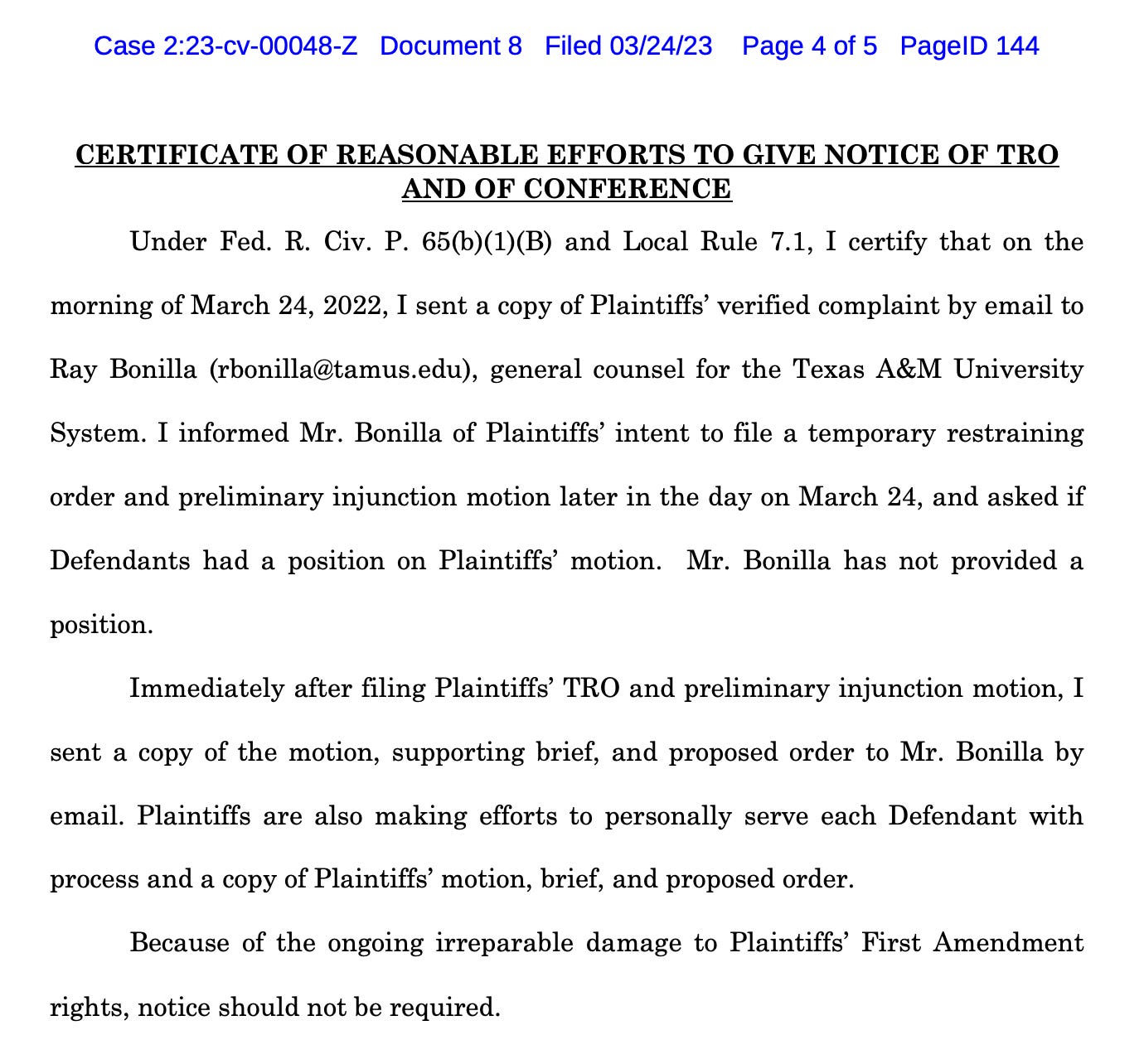Texas judge rules against immediate relief for students facing drag show ban
Citing a procedural rule but giving no further explanation, Judge Matthew Kacsmaryk holds off on granting relief to students whose university president banned a charity drag show.
U.S District Judge Matthew Kacsmaryk refused a student group’s request for an immediate order preventing their university’s president from unconstitutionally banning their scheduled on-campus charity drag show due to his personal opposition to the show.
Kacsmaryk, a Trump appointee with a record of anti-LGBTQ beliefs and rulings, wrote that the requirements for an ex parte temporary restraining order were “not satisfied” by the lawyers for the students at West Texas A&M University. An ex parte order is an exceptional request, it’s true: It’s a request for an order from a court without hearing both sides.
But, this is an exceptional case: The WTAMU president, Walter Wendler, wrote in announcing the cancellation of the charity drag show scheduled for March 31 that he was doing so even though “the law of the land appears to require” otherwise. (Law Dork covered this aspect of the case on March 24, when the lawsuit was filed.)
The clear viewpoint discrimination and content discrimination involved in this case, from a public official at a public college, where existing policies at the school clearly would allow this event, should make this an open-and-shut First Amendment case.
So, what happened?
In the Federal Rules of Civil Procedure, here are the standards for granting such exceptional ex parte TRO relief:
Specifically, Kacsmaryk wrote that the (b)(1)(B) requirements were not met. Notably, he wrote nothing about the (b)(1)(A) requirements.
It’s really hard to see how this could be true.
First, lawyers for the student group, Spectrum WT, are from the Foundation for Individual Rights and Expression (FIRE), which sent a letter to Wendler about their concerns with his actions on March 21, as noted in the complaint in the case.
In addition to the university acknowledging receipt, this was a public, known request. (Among others, I tweeted about it.)
The university did not act in response, however, leading to the lawsuit — and request for the ex parte TRO, among other relief — filed on March 24.
Specifically, the motion noted that the students were asking for the ex parte TRO “given the ongoing irreparable injury to their First Amendment rights” and included the following 65(b)(1)(B) certification1:
The brief accompanying the request further laid out the need for quick action from the court out plainly.
The brief went further than that, explaining why relief couldn’t wait.
And, this.
Despite all of that, Kacsmaryk’s order today means that the earliest these students will know that they can go ahead with their charity drag show is the day before the show is scheduled to take place.
This is a clear-cut case involving an ongoing constitutional violation with a fast-moving timeline where the party in violation was notified of the constitutional concerns before the lawsuit was even filed, and yet, Kacsmaryk, without providing more than reference to that rule, has effectively snuffed out the students’ exercise of their First Amendment rights for another week.
This was updated at 4:45 p.m. on March 28 to include the certification language and screenshot.










It’s not fair all these cases go to this transphobic ass of a judge
It’s like there is a contest between Texas and Florida to see which state can trample the most on their residents’ Constitutional Rights.
We need to get big money out of politics, & term limit all judges, starting with the Federal Supreme Court & working our way down the entire court system.